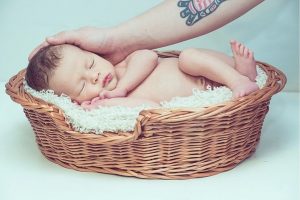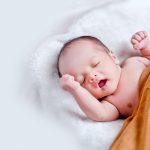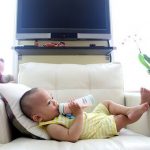Hygiene is the most vital thing for any human health. It is even more important when it comes to your baby whose immune system is not strong enough. They are susceptible to viruses and germs, and therefore you require taking extra care for their well-being. A baby is very sensitive such that even a tiny microbe can make them sick. So, make sure their environment clean and anything you know they may come into contact with.
Also, learn how to wash baby clothes separately from those of the adults. Their clothes need to be washed with a special detergent that is not harsh but gentle and does not affect their skin.
The first 28 days after birth are the most critical period for a newborn baby. And if handling
Your baby is still a new thing to you; here are hygiene rules that you should follow.
Wash Your Hands
Before you handle your baby, make sure you wash your hands using antibacterial soap to get rid of germs and bacteria responsible for causing diarrhea, flu, colds, and other infections. After that, dry your hands with a clean towel and ensure they are regularly washed. It is vital to wash your hands after handling raw food, changing napkin, going to the loo, touching pets, food waste, rubbish, or before feeding your baby.
Clean Toys
Babies put everything they touch into their mouths, and before you distract their attention with toys, make sure they are clean. Use disinfectant to clean any germs because toys are the closest items that babies easily put into their mouths. After the toys are washed, rinse and wipe them thoroughly to ensure the baby is safe when playing with them.
Do Not Expose Your Baby To Large Groups Of People Before The Baby Is Six Weeks Old
The more you keep hygiene in your home is not the same care other people will do. Therefore, avoid exposing your baby to other people until six weeks are over. An adult can easily pass sickness to the baby, especially after contacting a sick person. Prevent your baby from catching any infection such as digestive disorders, flu, and colds by maintaining hand washing routines. Cleanliness and health should be your top priority to give the baby.
Observe Pets Around Your Baby
Never leave your baby alone with your baby or getting close to the pet. Also, you should prevent pets from getting to the baby crib. During your baby tender age, prevent dog family or cat from licking your baby face. Pets can transmit infectious disease into your baby’s mouth or eyes. Another thing you need to observe is ensuring any person who comes into contact with pets washes their hands before touching your baby.
Bathing Your Baby
Your baby requires a regular bath to keep them clean and tidy. Also, it allows them to relax and soothe their skin, but be careful not to scrub their skin because it is very sensitive. The baby’s first bath onward should happen at least three times per week for the entire year.
Fingernails
Fingernails hide dirt and not only for adults, but also for a baby. Be keen to check your baby nails often. The best way to avoid dirt sticking under the nails is to keep them well-trimmed to prevent germs and scratches. It is not easy to trim when the baby is awake, so do so when asleep. Also, do it gently, bearing in mind the nails of a baby are very soft, and a single mistake can cut the tip of their fingers. Use baby-sized nail clippers without cutting the entire nail, but leave a small part as making them too short may hurt the baby.
Nose
The nose pathway of your baby should at all times remain clear to avoid interfering with their breathing. You can use a damp cloth to clear any dried mucous. If you notice your baby’s nose is clogged with mucous, use a nasal syringe to get rid of excess mucous or visit your baby health practitioner to guide you better. Only seek doctor intervention if you have never used the needle before.
Eyes
Keep your baby’s eyes clear by washing them from any dried mucous. A damp cloth of wool is gentle enough to clear any dirt near the eyes. However, if you notice any irritation, seek medical intervention for a thorough checkup.
Clean Your Home
Your house should at all times be clean to avoid germs or bacteria finding a bleeding ground. Some germs and bacteria may not affect the adult, but they are very notorious to babies. So, pay attention in your home on surfaces that may harbor germs and bacteria. You should focus on cleaning areas that may easily attract germs in your house. Wash areas babies may into contact with hands, food, and bodies such as crockery, cutlery, tables, kitchen benches, glassware, and bathrooms. Use detergent and hot water for cutlery, glasses, crockery, and glasses, while bathrooms and kitchens require thorough cleaning with effective disinfectant.
Also, pay attention to tap areas, sinks, toilet seats, door handles, benches, and dry surfaces with no proper ventilation.
Wrap Up
Your baby’s health is very important at this tender age because it lays a solid foundation for their future growth. The tips shared above should guide you on the way forward to keep your baby healthy and your home environment.








